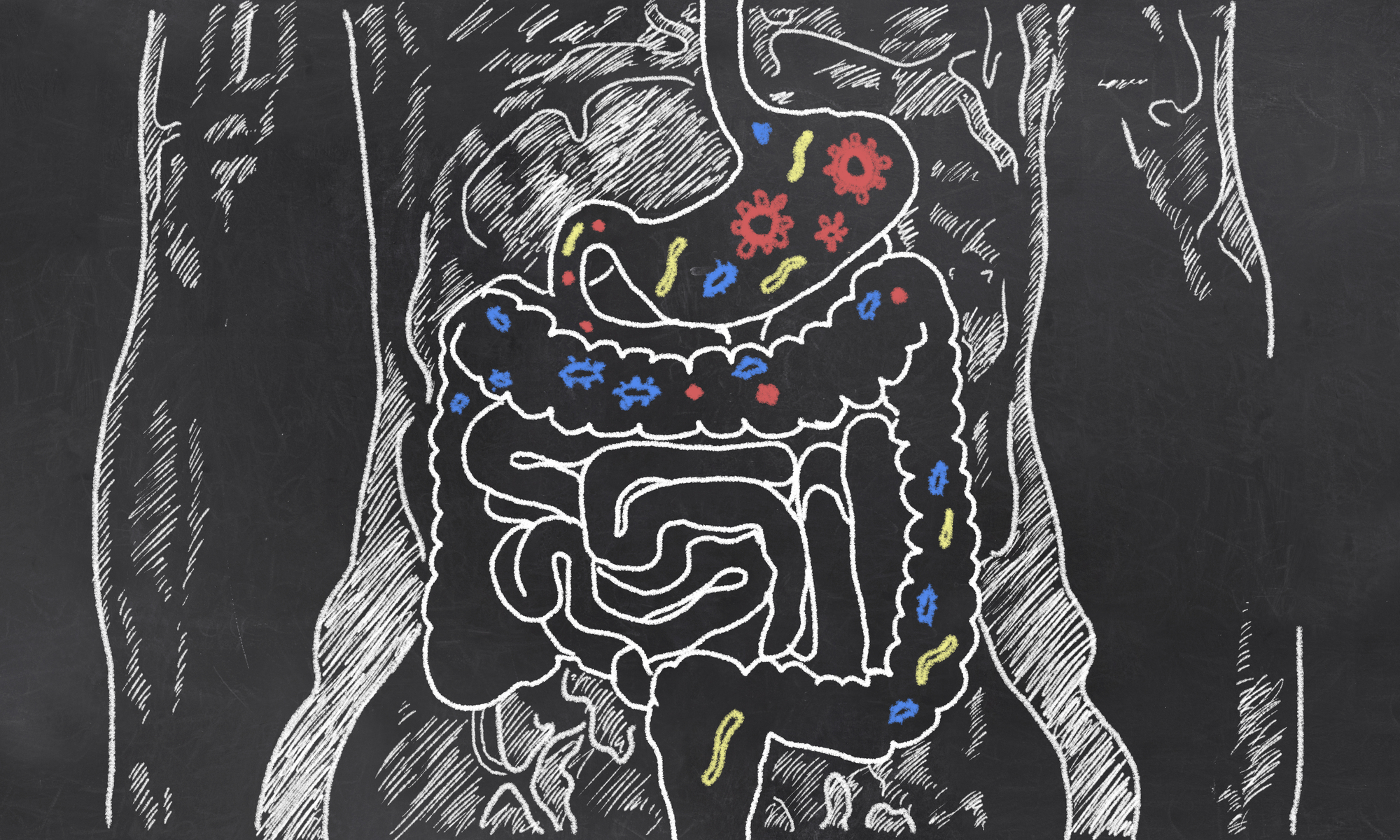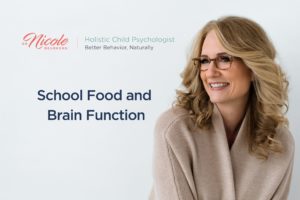The number of children diagnosed with autism spectrum disorders continues to rise every year, yet few treatments exist to actually treat the core symptoms of this disorder.
There are many behavioral approaches available, but the vast majority (including the ever-popular ABA) do nothing to address the root issues. Most children go through years of behavioral treatment with little long-term improvement that allows them to achieve better outcomes as they become adults. This is why treating the gut is vitally important for autism spectrum disorders.
What does your gut say …
One avenue of research that has gained a lot of attention in recent years is the gut microbiome – the community of bacteria in our gut. Understanding and addressing imbalances in the gut microbiome, along with other gut-related issues, holds promise for treating the underlying factors that may be at the root of the social, communication, sensory, and behavioral challenges that are present in ASD.
Thank goodness for parents …
I’ve been working with children and teens on the autism spectrum for 20 years, and give credit to many parents in the autism community for recognizing and addressing gut issues well before it was “popular” and had research support. Many parents inherently recognized that their children had GI issues that were not normal and needed support. While many professionals were discounting the physical health issues these children exhibited, it was parents who understood that kids can’t focus, regulate their behavior, communicate, and learn when they are experiencing chronic stomach pain, having explosive diarrhea, or are so constipated that they are doubled over.
It is largely because of these parents that medical professionals became interested in the gut-brain connection in autism, and began developing specific protocols and researching them. However, many people are still not aware of the huge impact that gut health and function has on ASD symptoms and behavior.
A recent paper provided a basic summary of gut-related issues in ASD, as well as treatment options that have shown potential for resolving these issues. Here are some key takeaways from this paper:
The Gut-Brain Connection in ASD:
- Gastrointestinal symptoms are very common in people with ASD. These include constipation, diarrhea, gas, bloating, reflux, and abdominal pain. These symptoms are connected to the severity of ASD symptoms, with more severely impaired children exhibiting more GI-related issues. The term “gut microbiome” refers to the community of microorganisms that inhabit the gut, and includes both helpful and harmful bacteria. Kids with autism who have GI symptoms seem to have less diversity of bacteria in their gut, higher levels of harmful bacteria, and lower levels of specific beneficial bacteria.
- The gut and the brain are very connected, which is why the gut is often referred to as the “second brain”. Bacteria in the gut act on the central nervous system, which allows for constant communication between the gut and the brain (via this gut-brain axis).
- Many children with ASD have a “leaky gut”, which means their intestinal tract allows toxins and bacteria into the bloodstream instead of keeping them sealed within the walls of the intestines. This can cause problems with brain function. Bacterial imbalances in the gut can also alter other compounds in the body, such as amino acids and fatty acids, which impact the brain and behavior. The brain and gut also communicate through the immune system, and some people with ASD have a bacterial imbalance that activates the immune system and causes inflammation throughout the body and brain.
Gut Treatments for ASD:
- Probiotics and Prebiotics – Probiotics are beneficial bacteria, such as Lactobacilli, Bifidobacteria, and Saccharomycetes, that support health and body function. These beneficial bacteria have been shown to prevent and treat many issues, including depression, anxiety, obesity, bowel disorders, and autoimmune issues. Prebiotics are components of foods that allow for the growth of beneficial bacteria in the gut.
Together, probiotics and prebiotics can increase the levels of health-supportive bacteria in the gut and have been shown to improve leaky gut, neurotransmitter production, and other issues related to brain function. Several studies have shown the benefits of prebiotics and probiotics for improving some symptoms of autism, although larger-scale studies are needed. - Fecal Transplants and Microbiota Transfer Therapy – These treatments involve the transfer of fecal material or specific bacterial components into the GI tract of patients. While it may sound bizarre initially, studies on fecal transplants show great promise for autism, IBS, and recurrent infectious issues that up until now have had few treatment options. While probiotic capsules or other products are limited in the number of organisms they contain, using fecal matter allows for the transfer of the entire contents of an individual’s microbiome into the recipient at once. This can lead to rapid shifts in the microbiome well beyond what a probiotic product can provide. One of the major concerns related to fecal transplants is ensuring a healthy donor so that the microbiota transferred do not introduce new problems into the transplant recipient.
Microbiota transfer therapy involves clearing the gut with antibiotics initially and then giving high dose standardized human gut microbiota into the patient for several weeks. This treatment has shown the ability to normalize the gut microbiome of people with ASD, which can lead to significant GI symptom improvement.
- Diet – What we eat impacts every aspect of our health and function, including the gut microbiome. Diets that lack variety, include inflammatory foods and are nutrient-deficient lead to gut imbalances and other issues that can cause problems. Many children with ASD have limited diets and, therefore, reduced vitamin and mineral intake. Lack of fiber is also an issue for many children with ASD. Limited diets can lead to negative changes in the gut microbiome and can cause inflammation that worsens leaky gut symptoms.
Research studies have shown that a variety of specific diet changes can support gut health and microbiome balance in people with ASD, including a gluten and casein-free (dairy-free) diet or ketogenic diet. Adding specific nutrients through supplements, such as Omega-3 fatty acids, has also shown benefit for improving gut health and behavior. A very recent study demonstrates the powerful impact of even modest dietary changes in children with ASD.
Here are 7 foods rich in Omega 3 Fatty Acids that you can start feeding your child to help with brain function.
- Antibiotics – These medications kill bad bacteria as well as good bacteria in the gut, which can lead to negative long-term consequences for many people. However, in the case of more severe autism, some studies have shown that specific antibiotics can improve gut health and behavioral functioning. The theory is that these children have very high levels of bad bacteria in their gut, and killing these off supports a healthier microbiome. Vancomycin, in particular, has research support for reducing chronic diarrhea and improving behavior.
Keep it trending …
It is exciting to see more research on the gut-brain connection in autism spectrum disorders, and hopefully, this trend will continue. Addressing gut and physical health issues should be a cornerstone of treatment for all children on the autism spectrum. While other approaches are needed and beneficial, supporting gut function provides a foundation for all other treatments.
We want to know …
What discoveries have you made with your children, students, or patients related to the gut-brain connection in autism? Are there specific dietary changes, probiotics, or nutrient supplements that have been helpful? Have you used any of the other approaches discussed in this article? I’d love to hear about your experiences in the comments below!
What You Should Do Next:
Sign up for my Better Behavior Naturally community newsletter
Sign up for my newsletter to get tips, resources, and supports to improve your child’s attention, anxiety, mood, and behavior…while making your job as a parent easier.
Enroll in one of my workshops
Check out one of my many workshops where you’ll join my exclusive community of parents in a one-of-a-kind virtual resource accessible 24/7. Whether you’ve got a child with a diagnosis like autism or ADHD, or are becoming more and more frustrated with a child who struggles to listen and cope, these workshops are designed to give you the information, tools, and support you need…whenever you need it.








